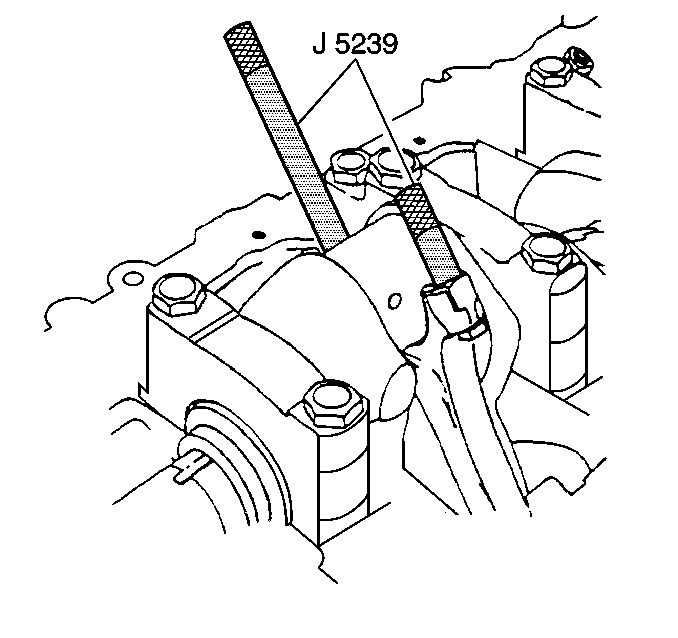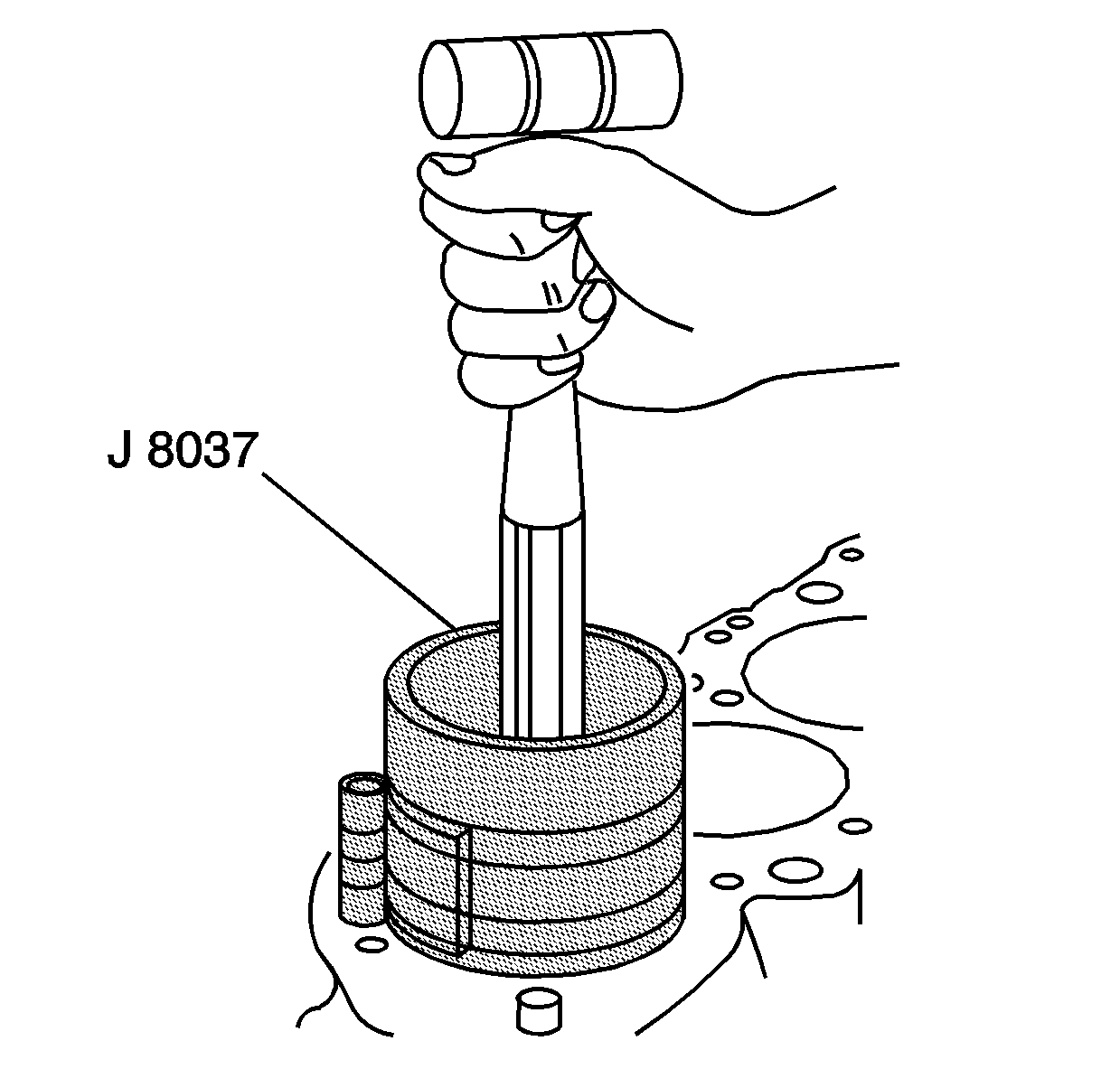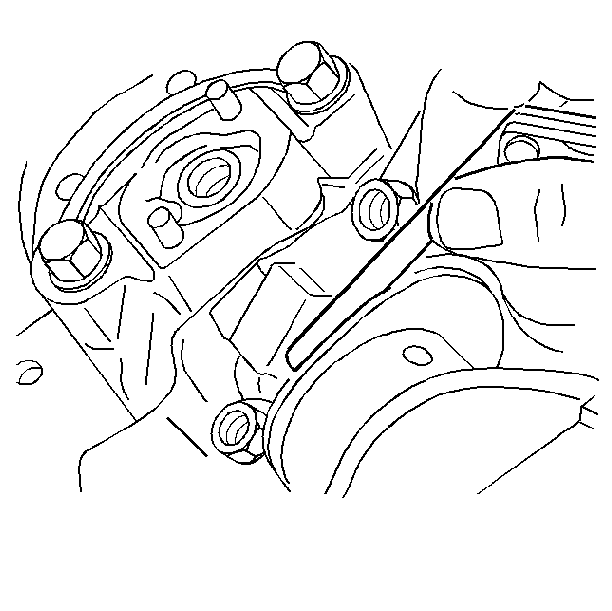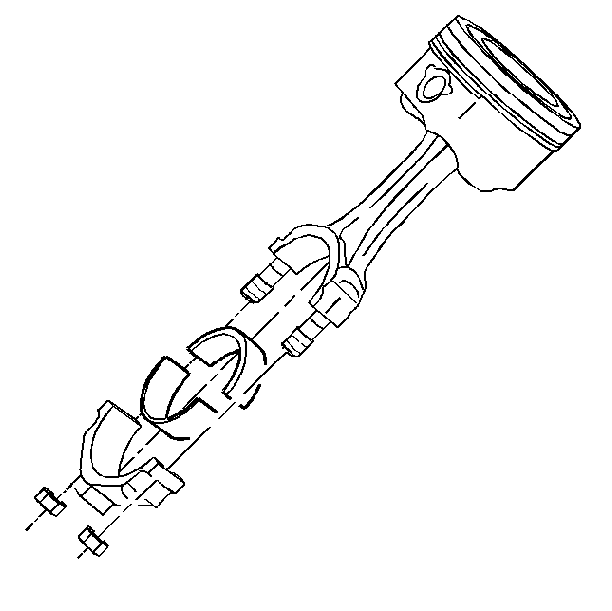Tools Required
| • | J 8037
Piston
Ring Compressor |
- Coat the following components with clean engine oil:

- Install the piston with the stamped arrow facing forward.
- Install the piston assembly into its matched bore.
When assembled, the flanges on the connecting rod and cap should face
to the front in the left bank and to the rear in the right bank.

- Use the J 8037
and
the J 5239
and to lightly
tap the top of the piston with a wooden hammer handle.
| • | Hold the J 8037
firmly against the engine block until all of the piston rings enter the cylinder
bore. |
| • | Use the J 5239
in order to guide the connecting rod onto the crankshaft journal. |
- Remove the J 5239
.

- When all of the connecting rod bearings are installed, tap each connecting
rod assembly lightly parallel to the crankpin in order to make sure that they
have clearance.
- Use a feeler gauge or a dial indicator in order to measure the
side clearance between the connecting rod caps. The rod side clearance should
be 0.16-0.43 mm (0.006-0.017 in).

- Install the connecting rod cap and nuts.
Tighten
| • | Tighten the connecting rod nuts a first pass evenly to 27 N·m
(20 lb ft). |
| • | Tighten the connecting rod nuts a final pass an additional 70
degrees using the J 36660-A
. |
Notice: Use the correct fastener in the correct location. Replacement fasteners
must be the correct part number for that application. Fasteners requiring
replacement or fasteners requiring the use of thread locking compound or sealant
are identified in the service procedure. Do not use paints, lubricants, or
corrosion inhibitors on fasteners or fastener joint surfaces unless specified.
These coatings affect fastener torque and joint clamping force and may damage
the fastener. Use the correct tightening sequence and specifications when
installing fasteners in order to avoid damage to parts and systems.




